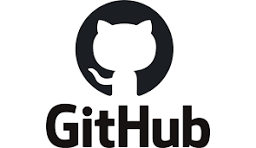Hey there, welcome to this blog post! Today I'm discussing GitHub, a service that's become essential for modern software developers.
You may have heard of it thanks to its increasing popularity. GitHub is both a website and a service that facilitates software development. It works by allowing users to store code in containers, called "repositories," to the cloud. GitHub also tracks changes made to that code using a tool called Git.
Git and Version Control
GitHub uses a version-control development tool called Git to manage projects. Simply put, a version control system allows users to save versions of their code. Without it, code gets overwritten every time a change is made. With a version control system, however, you get a history of every change you make. Git is an example of this kind of system.
Git vs. GitHub
Although Git and GitHub have similar names, they serve different roles: Git is the development tool, and GitHub is the service. You can use Git outside of GitHub on your local system.
GitHub is the most popular hosting service for Git repositories. It allows users to save their local Git repositories to the cloud. In short, GitHub acts as a tool for working with Git. The key difference in where the project is stored is:
- A repository stored on your computer is called a "local repository".
- A repository saved on GitHub (on the cloud) is called a "remote repository".
Key aspects of GitHub
- Version Control with Git: GitHub leverages Git to track changes made to files over time, allowing users to revert to previous versions, compare different revisions, and identify who made specific modifications. This ensures a comprehensive history of the project's evolution.
- Repository Hosting: It provides cloud-based hosting for Git repositories, making code accessible from anywhere and enabling synchronization across different machines. Repositories can be public, allowing anyone to view the code, or private, restricting access to authorized users.
- Collaboration Features: GitHub offers robust tools for team collaboration, including:
- Branches: Developers can create separate branches to work on new features or bug fixes without affecting the main codebase.
- Pull Requests: Changes made in branches can be proposed for integration into the main branch through pull requests, where other team members can review and discuss the modifications before merging.
- Issue Tracking: It includes features to track issues, bugs, and feature requests, facilitating organized project management.
- Community and Open Source: GitHub is a prominent platform for the open-source community, hosting countless open-source projects and fostering collaboration among developers worldwide.
- Project Management and Showcase: Beyond code, GitHub can be used to manage various types of projects and serves as a portfolio for developers to showcase their work.
- Tools and Integrations: It offers integrations with various development tools and provides applications like GitHub Desktop for a graphical interface to interact with repositories locally.
Who uses GitHub?
Although primarily known for software development, GitHub's version control and collaboration features make it useful for many different professions.
- Developers and software engineers: Use it for coding projects, both in private corporate settings and on public, open-source initiatives.
- Students: Use it to learn to code, collaborate on assignments, and build a public portfolio to showcase their work.
- Writers and content creators: Use it to manage revisions and collaborate on written content, since it can track changes in any type of file, not just code.
- Researchers and academics: Use it to share code, data, and documentation for scientific projects, ensuring reproducibility and fostering collaboration.
Conclusion
In summary, GitHub is an essential platform in modern development. It’s a hosting service that leverages the Git version-control tool to make teamwork and project management simple. By tracking every change and allowing you to save your local repositories to a remote repository in the cloud , GitHub ensures your code is safe, organized, and collaborative. It's far more than just a website; it’s the primary tool developers use today to manage history, collaborate seamlessly, and build software together.
In the next post, we’ll discuss more about Git. Thank you for reading and have a wonderful rest of your day.👋
